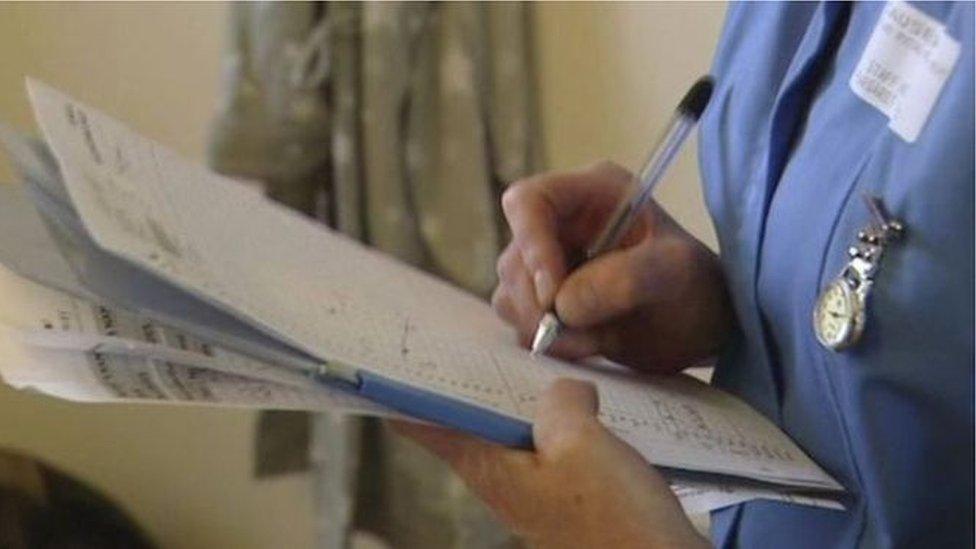Michael Watt's voluntary removal from medical register to be reconsidered
- Published

Relatives of victims of Dr Michael Watt protested outside the High Court in Belfast on Friday
A decision to allow a neurologist to voluntarily remove himself from the medical register is due to be re-listed before a new independent tribunal.
Dr Michael Watt was at the centre of Northern Ireland's biggest recall of patients over concerns about his clinical practice.
Last week the High Court upheld a legal challenge from two previous patients.
They opposed the decision to allow him to voluntarily remove himself from the register in 2021.
The Medical Practitioners Tribunal Service (MPTS) allowed him to voluntarily remove himself.
It meant he would not face a public hearing about any fitness to practise issues.
'Transparent way'
A spokesperson for MPTS said they would consider the judgment for "learning points that impact future tribunal decision-making".
Meanwhile the General Medical Council (GMC) said they had noted the judge's decision on Friday to quash Dr Watt's voluntary erasure.
A GMC spokesperson said that Dr Watt's patients had "suffered immense harm".
"On two occasions GMC decision makers refused to grant Dr Watt voluntary erasure from the register, and we were extremely disappointed that a Medical Practitioners Tribunal allowed his application for voluntary erasure in October 2021," the council said.
'We have always been clear that it was in the public interest for the case to be heard by an independent tribunal in a transparent way, and we hope that patients will have the opportunity to hear the allegations against Dr Watt at a fresh tribunal."

Dr Michael Watt worked at the Royal Victoria Hospital as a neurologist
An inquiry into Dr Watt's clinical practice at the Royal Victoria Hospital found the Belfast Trust failed to intervene quickly enough.
The Independent Neurology Inquiry concluded the combined effect of the failures ensured that patterns in the consultant's work were missed for a decade.
More than 5,000 former patients of neurologist Dr Michael Watt were invited to have their cases examined for possible misdiagnoses.
Among the conditions being treated were stroke, Parkinson's disease and multiple sclerosis (MS).
It also found failures were not confined to the Belfast Trust and communications between different organisations and management levels were inadequate.
- Published3 March 2023

- Published21 June 2022

- Published21 June 2022

- Published20 April 2021

- Published19 December 2019
